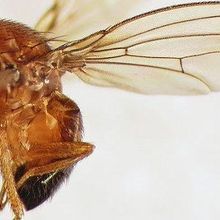inheritance

Infographic: Questions Linger About Epigenetic Inheritance
Catherine Offord | Apr 4, 2022 | 3 min read
Some studies suggest that associations between the health of children and the experiences of their parents or grandparents may be due to epigenetic mechanisms, but confounding factors challenge this interpretation.

Does Human Epigenetic Inheritance Deserve a Closer Look?
Catherine Offord | Apr 4, 2022 | 10+ min read
The concept of epigenetic inheritance has long been controversial. Some researchers hope that new data on cross-generational effects of environmental exposures will help settle the debate.

Doubts Raised Over Whether Mice Can Truly Inherit Immunity
David Adam | Jan 26, 2022 | 3 min read
An independent lab fails to replicate results suggesting mammals exposed to pathogens could pass on immunological protections through epigenetic mechanisms.

Protein Mediates Non-Genetic Inheritance of Growth Strategies
Catherine Offord | Jan 4, 2022 | 2 min read
An RNA-modifying enzyme passed to daughter cells during budding allows yeast cells to switch between faster- and slower-growing phenotypes.

Mitochondrial Stress Is Passed Between Generations
Amanda Heidt | Dec 1, 2021 | 3 min read
Researchers identified a novel mechanism by which chemically induced stress is “remembered” by the mitochondria of worms more than 50 generations after the original trigger.

Infographic: How C. elegans Transmit Stress Signals to Offspring
Amanda Heidt | Dec 1, 2021 | 1 min read
Neurons stressed with chemicals produce Wnt, which in turn triggers changes in the germline.

Legendary Child Psychiatrist Michael Rutter Dies
Lisa Winter | Nov 10, 2021 | 3 min read
He discovered that autism had strong genetic links.

Bianca Jones Marlin Traces How Sensory Inputs Shape the Brain
Annie Melchor | Oct 1, 2021 | 3 min read
The Columbia University neuroscientist researches the biology behind some of our most human experiences, including building family relationships.

Image of the Day: Neural Branching Gene
Emily Makowski | Jan 20, 2020 | 1 min read
A gene involved in a newly described syndrome affects neural functioning in fruit fly embryos.

Recent Trials for Fragile X Syndrome Offer Hope
Randi Hagerman | Sep 1, 2019 | 10+ min read
Despite a solid understanding of the biological basis of fragile X syndrome, researchers have struggled to develop effective treatments.

Genes that Are Harmless on Their Own Cause Disease When Combined
Chia-Yi Hou | Sep 1, 2019 | 3 min read
A case study of a family demonstrates that different genetic mutations from the two parents cause severe heart disease symptoms in the children.

Infographic: The Genetics of Fragile X Syndrome
Randi Hagerman | Sep 1, 2019 | 3 min read
Variation in the number of CGG repeats in the FMR1 gene at the bottom of the X chromosome can lead to increased levels of mRNA or decreased levels of protein—both conditions that cause disease.

Worm Parents Pass on Behaviors Epigenetically to Offspring
Katarina Zimmer | Jun 7, 2019 | 7 min read
Two research groups demonstrate that in Caenorhabditis elegans, behavioral traits can be passed down through the germline to future generations, even though they aren’t hard-wired.

Classic Mechanism of Epigenetic Inheritance Is Rare, Not the Rule
Ashley Yeager | Mar 1, 2019 | 3 min read
A study suggests that the direct transfer of DNA methylation marks from one generation to the next is much less common than scientists previously thought.

Opinion: The Central Dogma of Mitochondrial Genetics Needs Rewriting
John D. Loike | Dec 12, 2018 | 3 min read
The recent discovery of 17 people who have inherited maternal and paternal lines of mitochondrial DNA has major ramifications for medical and ancestry research.

Fathers Can Pass Mitochondrial DNA to Children
Anna Azvolinsky | Dec 4, 2018 | 4 min read
Researchers identify unique cases in which people inherited mitochondrial DNA not just from their mother but also from their father.

Genes and Blues
Bob Grant | Oct 1, 2018 | 3 min read
Learning about your own genetic idiosyncrasies comes with complex emotions.

Icelanders’ Genomes Hint at Origins of Genetic Diversity
Ashley Yeager | Sep 20, 2017 | 3 min read
An analysis of 14,000 genomes reveals regions where new mutations are more likely to develop.

Enzyme Required for Mitochondrial Genome Destruction
Abby Olena, PhD | Mar 22, 2017 | 3 min read
Mitochondrial DNA polymerase is necessary for the destruction of paternal mtDNA in fruit fly sperm, scientists show.
